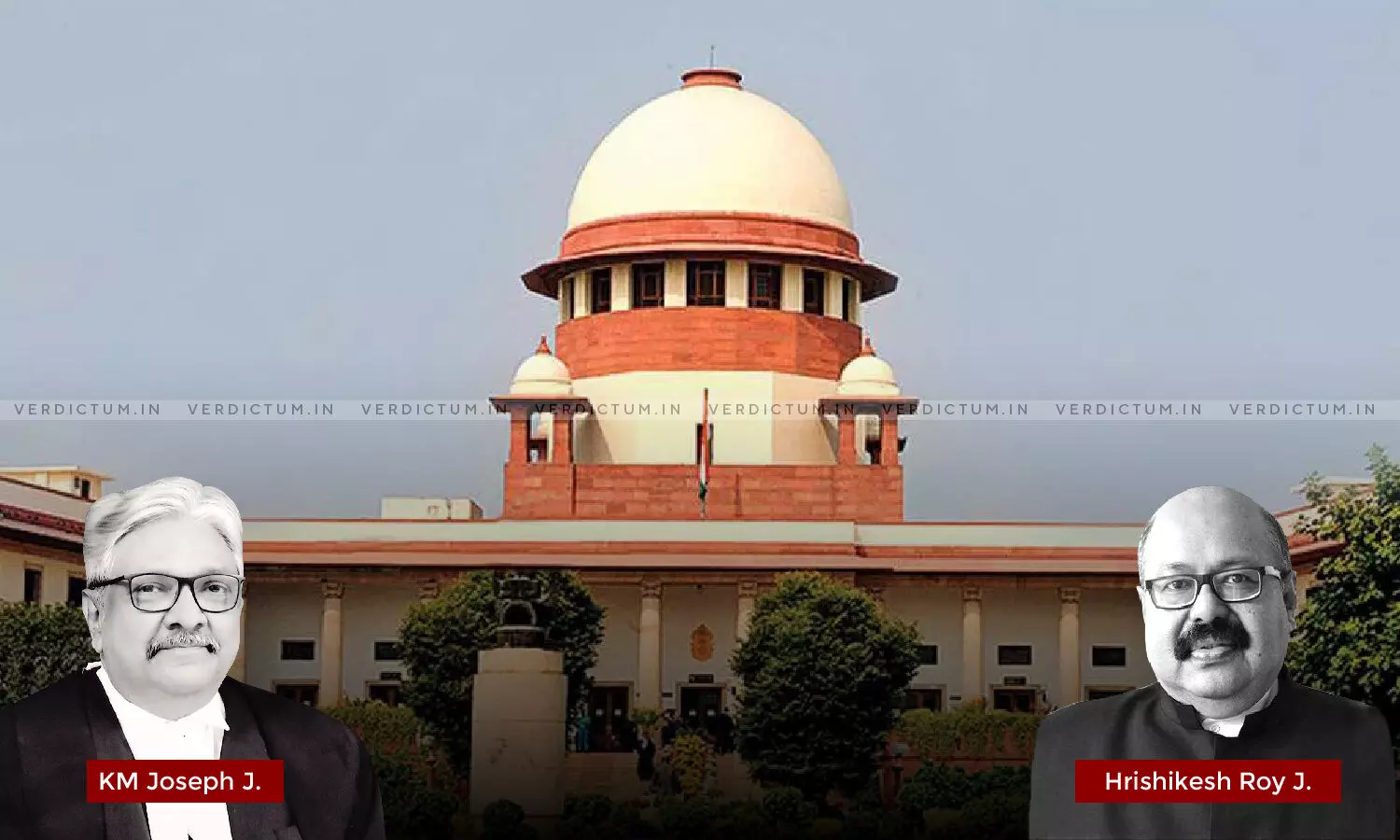
Liability Capable Of Being Estimated Cannot Be Treated As Contingent Liability, But As One To Be Discharged At Future Date- SC
 |
|The Supreme Court recently observed that the liability of unpaid duty, penalty, and interests not being a contingent liability, could not have been fastened on the shoulders of the buyer.
The Bench of Justice K.M. Joseph and Justice Hrishikesh Roy observed that "When the liability is capable of being estimated with reasonable certainty, the liability is not to be treated as a contingent one and should be considered as a liability which may be discharged at a future date."
Advocate T. Srinivasa Murthy appeared for the appellants. Additional Solicitor General Balbir Singh appeared for respondent no.1- State and Advocate Pradeep Misra appeared for respondent no.2 U.P State Sugar Corporation Limited (UPSSCL).
In this case, a Slump Sale Agreement, for the sale of UPSSCL, Amroha Unit, was executed between the appellant (buyer) and the UPSSCL (seller). In the agreement, it was stated that all the liabilities which accrued before the date of signing i.e., July 17, 2010 would be borne by the seller and the liabilities accruing after that would be borne by the buyer.
The appellants had preferred this appeal against the order of the High Court whereby the liability for payment of duty, penalty, and interest amounting to Rs. 5,68,797/-, for the period prior to the date of execution was declared to be borne by M/s Wave Industries Pvt. Ltd. (Purchaser) and not by the Seller on the ground that the tax liabilities were not part of the 'excluded liabilities' and that it would be the contingent liability.
The Apex Court allowed the appeal and observed that since the assessment orders and recovery citations issued by the taxing authorities were in the name of the UPSSCL, the liability for transactions before the Slump Sale Agreement could not be fastened on to the purchaser and that the seller would be liable to pay for such liabilities.
"the business liability for the Amroha unit had definitely arisen out of the operation of the unit during the period before the same was sold to the appellant, although the liability is to be quantified and discharged at a future date. When the liability is capable of being estimated with reasonable certainty, the liability is not to be treated as a contingent one and should be considered as a liability which may be discharged at a future date." observed the Apex Court.
The Apex Court further noted that the agreement was very clear as to who would bear the liabilities prior to the signing of the agreement and who would bear the liabilities for the post-sale transaction. Therefore, The High Court could not have fastened the liability onto the buyer "The liability of the purchaser for the dues relating to activities and operations of the unit for the period anterior to 17.7.2010, could not therefore have been fastened on the appellant in view of the clear provisions made in clause 9 of the Sale Deed read with Clause 12.1 and 12.2 of the Slump Sale Agreement as both are specific in nature." said the Apex Court.
The Apex Court also observed that it was the UPSSCL that had collected the dues from their customer on behalf of the State government and that they are under an obligation to deposit the collected sum in the government treasury and could not have passed the burden on to the appellant. "the UPSSCL are trying to usurp the collected sum and are trying to pass on the burden to the appellant who was neither the dealer nor they had anything to do with the operation of the unit prior to 17.7.2010."
Accordingly, the Apex Court allowed the appeal and set aside the impugned judgment being unsustainable.
Cause Title- Wave Industries v. State of U.P. & Ors.
Click here to read/download the Judgment